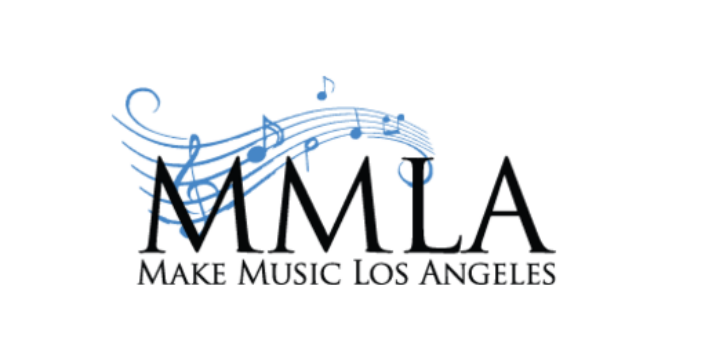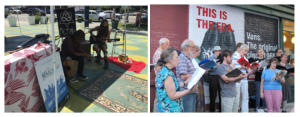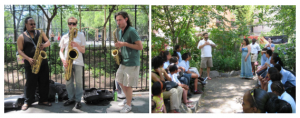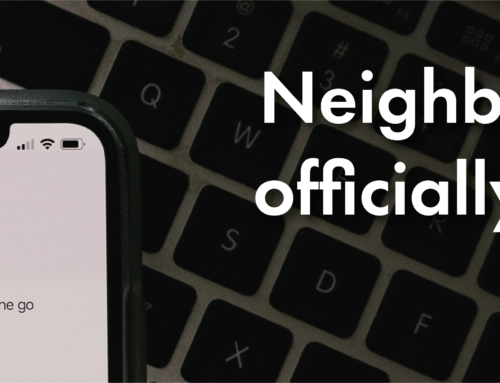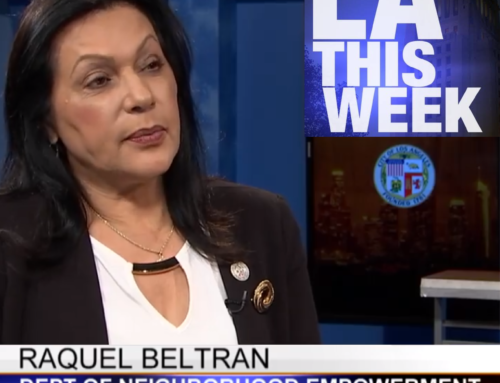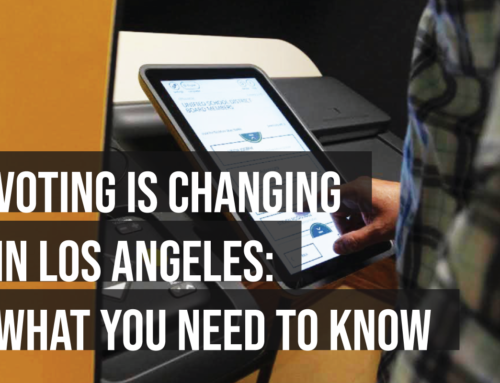The last installment of “how to” have Make Music LA in your community we talked about how easy it is to get started. We also let you know that you are not alone. The organizers of Make Music LA are available to be of help anytime you need it.
In today’s installment we discuss how to recruit artist and venues and how to work with local government for permits, police and all around communication to make your event legal (if permits are necessary) and to inform law enforcement of your activities.
Finding Artists
If searching for artist is new to you it just might be necessary for you to move out of your comfort zone and reach out through social media, friends, going to clubs and making contact with major figures in different music scenes in your community.
Beyond talking to musicians, this may mean talking to people who book venues, DJs or other radio people, teachers, journalists who cover the scene, bloggers, etc. Make sure you branch out! If your main connections are in the classical scene, try to find someone who’s in touch with local Latin music and see if they want to put some shows together. If you book DIY punk shows, reach out to jazz aficionados. Your event will run best if it attracts interest from many
directions. Try reaching out to a community who feel under-represented; your attention can inspire them to work hard to produce concerts that showcase their music to a broader audience.
Beyond genres, seek out eager individuals who don’t often get the chance to perform. Go to area open mics and leave cards with performers. Check online and print classifieds for people just getting started. Talk to music schools, public schools, etc. Talk to music directors at places of worship, engaging their players either in a religious capacity or as individuals who have other musical groups.
Musicians tend to have many projects! Just because someone’s band is playing at 1pm doesn’t mean they can’t play solo at 5pm. It never hurts to ask.
Finding Venues
Identity the major venues in town whose participation will make other venues and artists take notice. If such venues are booked in the evening for a show, see if they might want to do a showcase outside earlier in the day.
Think broadly about what constitutes a venue. Venues for Make Music LA are not limited to the traditional music venues with a huge sound system and a stage. Many of the most magical concerts happen in places where no one expects to find music. This could be non-venue local businesses (coffee shops, grocery stores, libraries), public spaces (parks), under-used private space (a centrally located parking lot), front or back yards, rooftops, on a boat, a bridge, or the back of a truck.
Musicians who’ve signed up will have connections to spaces, whether it’s their home, their place their work, or a friend’s venue.
For access to public spaces, contact the municipal government about park spaces. Often, at least a few months of lead-time will be needed and there may be fees for park usage. Inquire early to make sure you get everything squared away.
Seek out Business Improvement Districts (BIDs) and Chambers of Commerce to potentially leverage many locations at the same time. If you convince the head of the BID that Make Music LA is a great way to drive foot traffic in the neighborhood, you can bring in many venues in one fell swoop.
Local Government
Find out about the permit situation in town. Is it necessary to have permits for any outdoor concert? Are they needed only for amplified concerts? Or only concerts where players ask for money? In many locations, this information is obscured by anecdote and rumor, so go directly to the city government to find out (or town, or county, whatever the operative governing body is).
All cities are different. However, if your located in Los Angeles and you want to close off a street for a block party you must apply online for a Special Event Permit. The applications must be submitted 45 days before the event.
Special Event permits are issued by Bureau of Street Services–Special Events. Fees/Cost associated with the permitting of the event will be provided once the application has been reviewed by all affected City Department. Call 213-847-6000 for more details.
Make sure you speak with (or whomever is in charge) and the local police department about it. Even after permits are squared away, make sure the police department knows what you’re planning to do. Even if the law is on your side, it’s important to make sure the police on patrol on June 21st know the pertinent laws and are aware ahead of time of all the outdoor music that will be taking place. Sometimes it’ll be best for only the city admin(s) to be in
touch with the police, but it might be beneficial to introduce certain venue managers or performers to the officers directly.
Find out if there are other permits or fees associated with using parks or other types of public space. Be sure to talk to the park heads and their staff much like you’d talk to the police and make sure everyone’s on the same page in advance of June 21st. Parks might be particular about things like larger instruments damaging the grass, or wanting to keep pedestrian traffic
on paths, things like this.
Next time we’ll talk about fund development – how to fund your events through collaboration, partnerships with Business Improvement Districts, Chambers of Commerce and local music and arts organizations.


